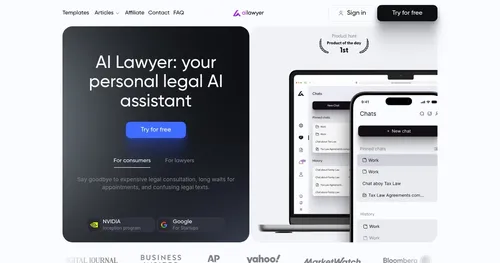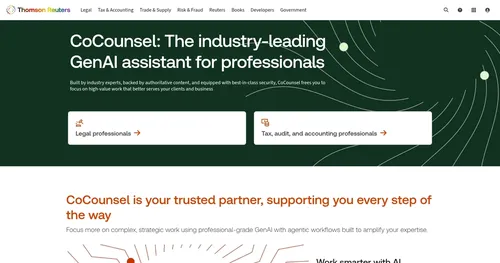Solve Intelligence
Solve Intelligence is an AI platform that assists patent professionals with invention harvesting, application drafting, and prosecution tasks. It generates invention disclosure forms, customizes submission processes, and manages disclosures in one interface. The tool supports interactive drafting for various application types, including standalone, continuation, divisional, continuation-in-part, and design patents. Users customize AI outputs to fit specific styles, jurisdictions, technology fields, clients, and preferences. It processes figures, chemical structures, biological sequences, and other elements for diverse practice areas.
In prosecution, Solve Intelligence drafts office action responses, claim listings, and amendments aligned with user styles. The AI analyzes objections, rejections, and prior art for accuracy and validity. It generates amendments and arguments to address issues. Multi-source citations include file wrappers and case law to support strategies. The platform ensures data confidentiality with no AI model training on user inputs, sandboxed access, AES-256 encryption, TLS 1.3, and certifications like SOC 2, GDPR, CCPA, and ISO 42001.
Customers report efficiency gains of 50 percent or more in drafting and prosecution. Testimonials highlight time savings of 25 to 80 percent while maintaining or improving output quality. Firms like Scale LLP achieve 40 to 60 percent drafting efficiency increases. The tool integrates into workflows similar to Google Docs but with AI assistance. Recent funding of $12 million in April 2025 supports development, backed by Microsoft and Thomson Reuters.
Competitors include DeepIP for drafting automation and Patlytics for analytics. Solve Intelligence offers broader coverage across patent stages compared to these. Subscription models provide access, with enterprise options for larger firms. User feedback on platforms like G2 and Reddit notes strong performance in time reduction but mentions a learning curve for prompts.
Solve Intelligence updates features regularly based on user input. Case studies show integrations with firms like Meitar and Intellex EU, reducing drafting time without quality loss. For implementation, users start with trials on simple tasks to build familiarity. The platform supports collaborative editing and inline prompting for refinements.
Video Overview ▶️
What are the key features? ⭐
- Invention Harvesting: Generates standardized disclosure forms and customizes questions for inventors while tracking submissions.
- Interactive Drafting: Assists in creating full or partial patent applications with attorney oversight for various types.
- Style Customization: Adapts AI outputs to match user preferences across jurisdictions and technology areas.
- Prosecution Responses: Drafts office action replies, claims, and amendments with integrated citations.
- Media Handling: Processes and edits figures, chemical structures, and biological sequences for technical accuracy.
Who is it for? 🤔
Examples of what you can use it for 💭
- Patent Attorney: Drafts complete applications from inventor transcripts, cutting review time by half.
- IP Advisor: Analyzes office actions and generates arguments with citations to strengthen responses.
- R&D Engineer: Submits customized invention disclosures to streamline idea capture and tracking.
- Life Sciences Lawyer: Edits biological sequences and figures for precise biotech patent filings.
- Firm Administrator: Manages disclosure statuses across teams for better workflow oversight.
Pros & Cons ⚖️
- Cuts drafting time 50%
- Customizable styles
- Strong security
- Handles complex media
- Learning curve for prompts
- Export glitches occasional
FAQs 💬
Related tools ↙️
-
Filevine Streamlines legal case management with AI-powered tools for efficiency
-
 AI Lawyer
Personal AI lawyer at your fingertips, providing you with expert legal help anytime, anywhere
AI Lawyer
Personal AI lawyer at your fingertips, providing you with expert legal help anytime, anywhere
-
Crosby Accelerates contract reviews using AI agents and lawyer oversight
-
Cimphony Automates legal services for startups with AI agents and expert lawyers
-
Legitt Automates contract creation, review, and tracking with AI agents
-
 CoCounsel
Tool for legal document review, research memos, deposition preparation, and contract analysis
CoCounsel
Tool for legal document review, research memos, deposition preparation, and contract analysis

